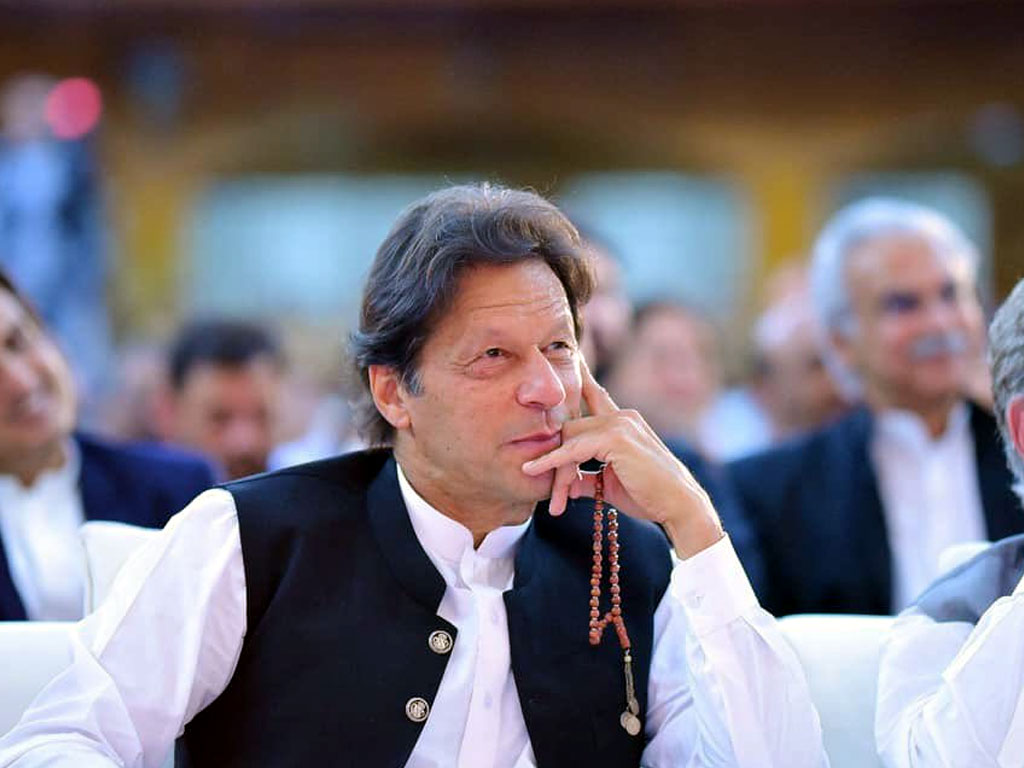In the intricate web of Pakistani politics, an unusual narrative is emerging, suggesting that Imran Khan is seemingly losing the election without even officially entering the contest. On the flip side, Nawaz Sharif appears to have secured an advantageous position, having purportedly won the election before formally throwing his hat into the ring. The underlying factor contributing to these speculative dynamics is the perceived stance of the Pakistan Army and ISI against Imran Khan.
The political landscape in Pakistan has always been marked by complexity, and the upcoming election is no exception. Imran Khan, the incumbent Prime Minister, is facing a unique predicament as observers and analysts speculate about his chances, or rather lack thereof, in the electoral arena. The surprising aspect is that this evaluation is taking place without Khan officially declaring his candidacy, signaling an unusual prelude to the electoral race.
At the heart of this speculation is the alleged unfavorable stance of the powerful Pakistan Army and ISI (Inter-Services Intelligence) against Imran Khan. The military has historically played a significant role in Pakistani politics, and its perceived interference in electoral processes is not a new phenomenon. However, the extent to which it may impact Imran Khan’s electoral prospects is becoming a central point of discussion.
Contrastingly, Nawaz Sharif, a seasoned politician and former Prime Minister, is purportedly enjoying early success in the political arena, despite not formally entering the electoral contest. The notion that Sharif has already won the election before officially contesting raises questions about the dynamics at play behind the scenes. The narrative suggests that certain forces within the military establishment may be favorably disposed towards Sharif, contributing to his perceived advantage.
While these claims and speculations create an air of uncertainty and intrigue, it is essential to approach them with caution. The relationship between politics and the military in Pakistan has been a complex and evolving one, with various factors influencing the outcomes of elections. The role of the military and intelligence agencies in shaping political outcomes is a topic of ongoing debate and scrutiny.
As the political landscape unfolds, it remains to be seen how these speculative dynamics will play out in the actual electoral arena. The intersection of politics and military influence is a delicate balance, and any perceived bias or interference can have profound implications for the democratic process in Pakistan. The upcoming election promises to be a pivotal moment in the country’s political history, with the shadow of military influence adding an extra layer of complexity to an already intricate tapestry.
Unveiling the Alleged Intrigue: Army’s Covert Influence in Pakistani Politics Amidst Indian Claims
In the dynamic realm of South Asian geopolitics, Pakistan often finds itself under the scrutiny of neighboring India, with claims of the military’s secret influence echoing through the corridors of international discourse. The intersection of military and politics in Pakistan has been a longstanding point of contention, and the recent allegations of covert influence only serve to add fuel to the already complex narrative.
Historical Context:
The intertwining of the military and political spheres in Pakistan’s history has been a defining feature. The country has experienced periods of direct military rule and instances of behind-the-scenes influence by the armed forces. India, with its own set of concerns and interests, has consistently pointed fingers at Pakistan, alleging that the military’s role extends beyond its constitutional boundaries.
Recent Allegations:
Recent events have brought the issue to the forefront once again, with India claiming that the Pakistani military wields a clandestine influence in the country’s political landscape. These allegations are not isolated incidents; rather, they are part of a broader narrative wherein India asserts that the military’s covert involvement impacts regional stability and undermines democratic processes in Pakistan.
The Kashmir Factor:
The Kashmir dispute, a longstanding and sensitive issue between India and Pakistan, often acts as a catalyst for heightened tensions and mutual accusations. India contends that the military’s alleged interference in Pakistani politics is linked to its strategic objectives, particularly concerning the situation in Kashmir. The military’s influence, as claimed by India, is seen as a means to perpetuate a certain political narrative that aligns with its interests.
International Scrutiny:
The alleged secret influence of the military in Pakistani politics has not escaped international attention. Various global actors, including diplomatic circles and human rights organizations, have raised concerns about the impact of such influence on the democratic processes within Pakistan. The ongoing debate sheds light on the delicate balance between the military’s role as a national security institution and its responsibilities within a democratic framework.
Pakistan’s Response:
Pakistan, in response to these allegations, categorically denies any undue military interference in its political affairs. The government asserts that the military operates within the confines of the constitution and emphasizes its commitment to democratic governance. However, the persistent claims from India continue to fuel speculation and contribute to the broader narrative surrounding Pakistan’s internal dynamics.
Conclusion:
The intricate relationship between the military and politics in Pakistan remains a subject of ongoing debate, with India’s allegations serving as a recurring theme. As the international community observes these developments, the need for transparency and adherence to democratic principles becomes increasingly crucial. Ultimately, the path forward for Pakistan involves navigating the delicate balance between national security imperatives and the preservation of democratic values, all while addressing the persistent claims from its regional neighbor.


